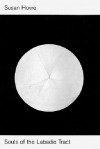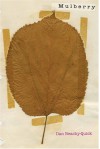Currently reading
Red Rising

I read this book because Buzzfeed told me to - they said this author was going to be the next literary superstar (at least in plot-driven fiction novels). His genre is dystopian fiction - which I love along with everyone else right now. I love reading young writers - people that are just a little bit older than I am. I love seeing what they have created. It's inspiring to me, and gives me hope that I can achieve as well. Pierce Brown is only 26, and apparently already has a movie deal for the book, so my interest was immediately piqued. This must be some book, I thought to myself.
Red Rising from a strictly plot-based perspective is fairly interesting. The first part bogs down a little bit, but basically shit happens, the main character gets mad and invested, transforms into a superhuman, and then a sort of winner-takes-all Hunger Games thing happens where everyone is literally fighting each other to win prestige. It's a little cliche, but I appreciated the Greek gods theme that played into the storyline. As a dystopian novel, it does introduce something new I think. The caste system in Brown's world is beautifully intricate and interesting to think about. I can honestly say that this is one of the first books that I have read in a long while that has kept me up past my bedtime to read, so it definitely has that going for it.
What I cannot get behind is a. how sexist; b. how heteronormative/homophobic; c. how white this book is. Considering that the book is written by a young, white male, this is not surprising. It is, however, disappointing.
a. Several things point to this book being sexist/heteronormative/homophobic.
From the beginning, there are lists of things women can't do. Women wouldn't eat if their husbands didn't work for them. Women can't go down into the mines - that requires a man's touch. Blahblahblah. Later, as the novel progress (and the main character moves into a higher caste), women are allowed to engage in the same behavior as men - war making. Still, though, women are seen as lesser than the men. Any real villain that the main character faces is a man, not a woman. Women are easily outwitted and defeated. The primary insults against a man are just like they are in today's culture - someone cries like a girl, or is as weak as a woman, or is a "pricklicker". That last insult, I believe, points to the heteronormative attitude of the book and disparages both women and gay men. There is also noticeably a lack of anything but straight people in this book, though there is the token "effeminate" man who makes our sexist hero, Darrow, into a dazzling, glorious token of male perfection.
The most important part I can point to in the novel is how the characters treat rape. During what I'll call the Hunger Games portion of the book, a lot of women get raped or get almost raped. Characters say, "Oh, that's just war." More troubling is Darrow's treatment towards a man who attempts rape, but is prevented. At this point, Darrow has already executed someone for rape and apparently the near victim doesn't want any action to be taken against the man who nearly harmed her. Darrow has the man whipped for his crime. And then, to illustrate some kind of point, he has the perpetrator whip him - Darrow - to show that the tribe's actions affect them all. Afterwards, all is of course forgiven and the near rapists becomes one of Darrow's most loyal followers. I'm not sure what this is to illustrate other than the fact that author writes a world that is a boy's club. I found this part disturbing and somewhat rape apologist.
The hero's lady, nicknamed Mustang, of course gets kidnapped by the bad guys and he has to storm in and rescue her. She does comment on this with something along the lines of, "Oh, I became a damsel in distress? Man, I hate those girls." Mustang and our main character's first love interest, Eo, both function as the Manic Pixie Dream Girl - beautiful, perfect, inspiring women who encourage Darrow to do great things and become the hero he is destined to be.
Misogyny transcends, apparently, all levels of the caste system from Red where Darrow begins to Gold where he ends up. Along the way, we meet creative Purples who "create" women (ie, give them literal angel wings) for their sexual pleasures. Pink is the caste of pleasure - and there are all sorts of insults related towards being a Pink, let me tell you.
b. Pretty sure that there are no people of color in this book. It felt decidedly white-washed. It may need a closer read - but why should we have to read between the lines to find diversity in our novels? Of course, the elite, ruling class (and basically everyone in the majority of the book) is white and blond - the Gold Class in the caste system.
Mostly all of them are incredibly attractive, by the way. Nothing will piss me off in a novel more than the author's need to assert that the main character is attractive. WHO CARES. Marie Lu's Legend did the same thing and it's obnoxious. A person is not more valuable simply because they are attractive, and I am not going to love a character more because they are good looking.
These two factors (though, if I'm being honest, primarily the first one) ruined the book for me. I can't even describe how many times I headdesked over this book and it's misogynistic white male writing. The plot was interesting - but the ideas presented are nothing fresh or new. We already live in a misogynistic, heteronormative, homophobic, white-washed dystopia. Writing a book that seems to celebrate or promote this fact does absolutely nothing to challenge the system and Red Rising is frankly a disappointment that will mostly likely be largely promoted.
Let's not, however, make the mistake of putting Red Rising in the same category as The Hunger Games as the reviewers have because it in no way challenges what terrible parts of society we already experience - it embraces them.








 2
2
 2
2
